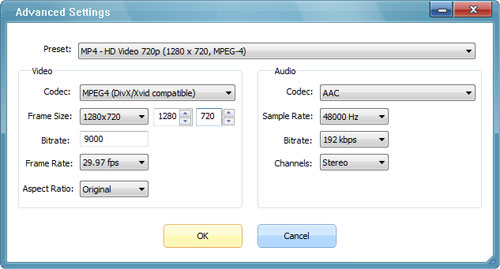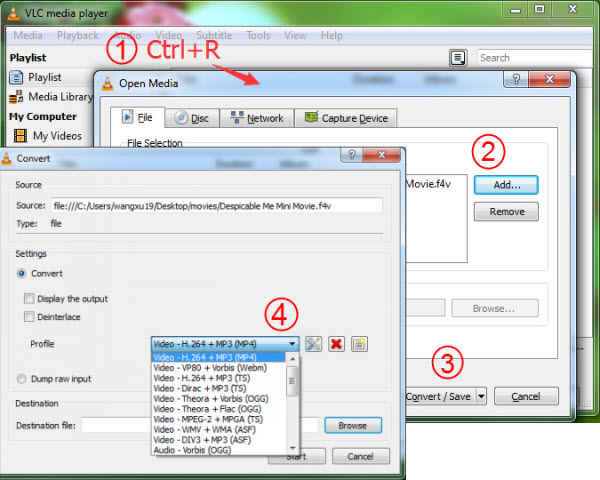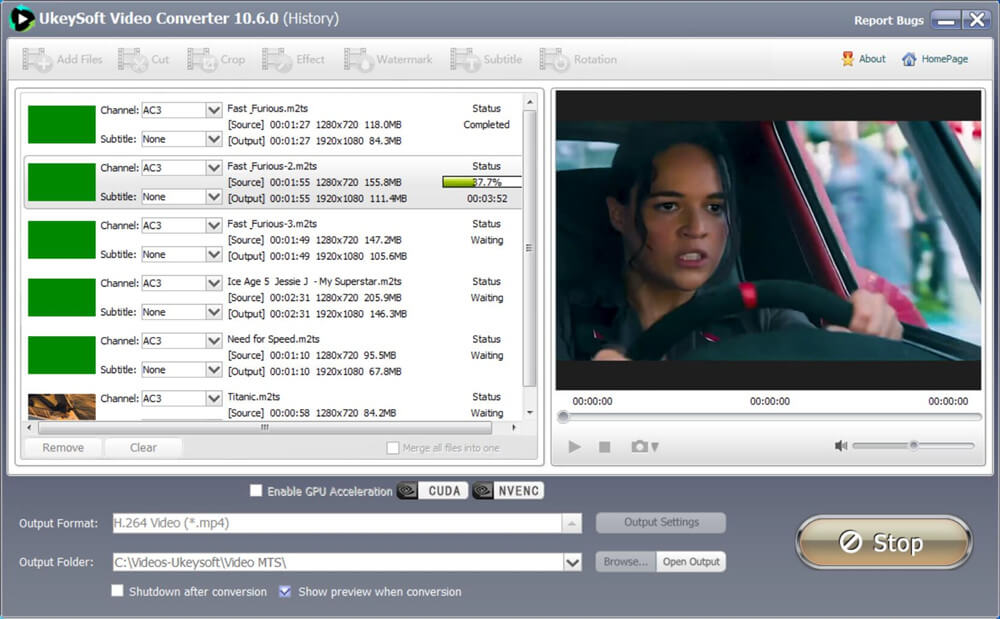

It doesn't matter if you are not the technical wizard type. Some TVs only support FAT32 and are restricted to play titles no larger than 4GB.Ĭapable MTS to MP4 Video Converter can Take Care of All the Aspects When the camcorder films too long, it may divide the footage into 2GB chunks. There are many pitfalls when handling the files: MTS files stored in AVCHD folder can be corrupted when copying to computers (for instance, fail to copy the entire folder).

Folder structure and spanned MTS/M2TS issues
.mts to mp4 converter tv#
Passing through the video stream can ensure the quality remains the same (known as Auto Copy/Remux in some converters), and speed up the process for batch tasks since no transcoding is involved.Īs for the audio stream inside the MTS/M2TS files, transcoding from AC-3 to the more compatible AAC supported by the MP4 container is a nice choice (AC-3 is not well-supported in iTunes, QuickTime, iPhone, Apple TV and other iDevices).ģ. Since MP4 and MTS/M2TS all support MPEG and AVC codec, there is no need to transcode the video stream.

Retain original quality with/without transcoding It can be problematic with standalone M2TS files, when you just have the file on Mac, not from camcorders.Ģ. Some versions of FCP and iMovie support importing MTS from camcorders with proper plugins, yet it can be too slow for a bunch of files. Plus, users might want to edit MTS for home videos. Without corresponding codec and container support, some players cannot open MTS files.
.mts to mp4 converter software#
If you want to open MTS/M2TS files or edit them on Mac, you need to find supported software or to convert MTS to MP4 on Mac, since MP4 is widely supported and is the most compatible format these days.ĭue to the complexity of how MTS/M2TS is stored, with structured AVCHD folder (Advanced Video Coding High Definition) that can be easily messed up and poor codec support by other apps on Mac, there are 3 aspects worth noting:ġ. MTS and M2TS files are not well supported on Mac. It can be authorized as M2TS for distribution, such as on DVDs, SDHC cards, or Blu-ray discs. MTS is jointly developed by Sony and Panasonic for their camcorders, and the format is also adopted by Canon, JVC, and Sanyo.


 0 kommentar(er)
0 kommentar(er)
